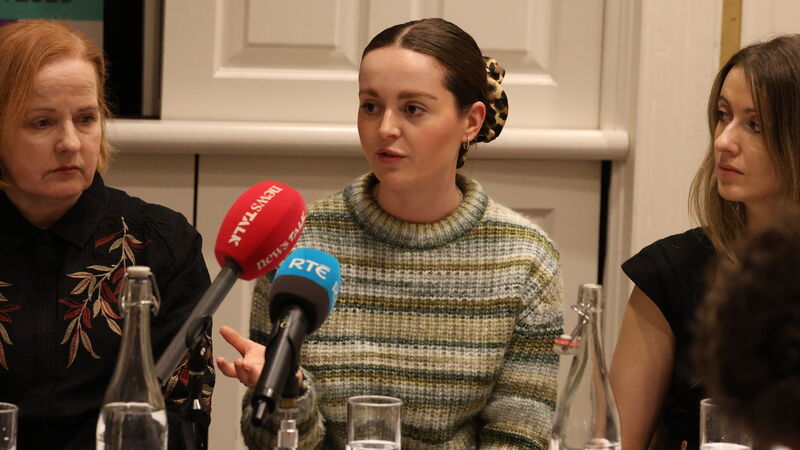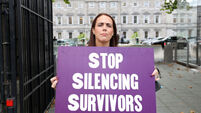Open letter to ministers: Stop the use of clinical notes in rape cases

Ciara Mangan, flanked by Ruth Coppinger TD and Sarah Grace, speaking in February at a press conference where survivors called for reform of Ireland's 'barbaric' legal system. See link at foot of this article. Picture: Stephen Collins
- An open letter to
- Minister for Children, Disability and Equality, Norma Foley;
- Minister of State with responsibility for disability, Hildegarde Naughton;
- Minister for Health, Jennifer Carroll MacNeill;
- Minster for Justice, Jim O’Callaghan;
- Minister for Mental Health, Mary Butler.
















